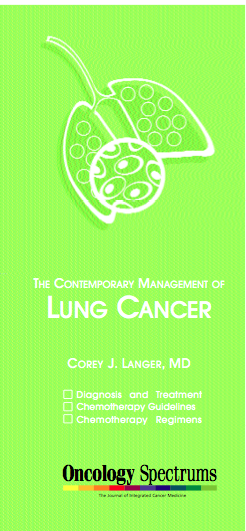A number of unanswered or evolving issues remain in lung cancer. These issues include: revisiting the issue of screening and early detection using spiral computed tomography (CT); the evaluation of new, non-toxic agents for chemoprevention in those at risk and in those with pathologic stage I disease; the role of molecular genetics and other biologic markers in fingerprinting tumors, predicting prognosis and tailoring therapy; the ultimate role of newer agent(s) as part of neoadjuvant therapy in less advanced (stage II and III) disease; the role of newer agents that alter the tumor milieu/microenvironment (eg, angiogenesis or metallo- proteinase inhibitors, etc.) in delaying progression in late disease and preventing relapse in earlier disease; the proper sequencing of radiation and chemotherapy in stage III disease (eg, the ultimate role of sequential neoadjuvant and concurrent chemoradiation); the roles of biologics, non-chemotherapeutic radiosensitizers and normal tissue protectants in stage III NSCLC; the opti- mal dose, volume, fractionation and schedule of radia- tion therapy (RT), and the role of 3-D conformal RT; and the necessity of surgery after chemoradiation for stage III disease.


